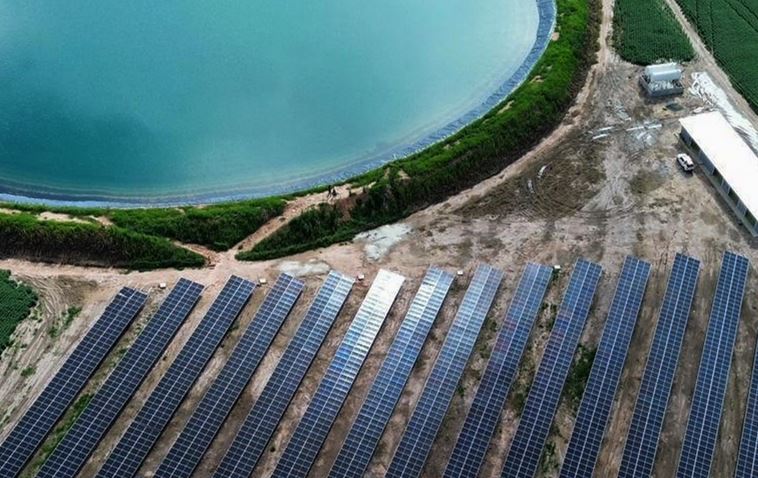Developer Loop Energia has built a 1.2 MW off-grid solar power plant that now serves a central irrigation system in the Brazilian state of Bahia. The project reportedly allows local farmers to double soybean yields by realizing significant savings through significantly reduced diesel consumption.
The irrigation project was made possible by Brazilian PV project developer Loop Energia. The system is fed through eight artesian wells, seven central pivots and three storage basins with a total capacity of 600 million liters of water. It is served by an internal and private 34.5 kV medium voltage network over a distance of 21 km.
The 1.2 MW off-grid PV installation is equipped with 545 kW bifacial modules from JA Solar, with half-cell technology. The 2,210 panels are connected to nine PHB inverters, combined into a thermal energy system consisting of five motors: three 700 kW motors and two 550 kW motors.
“With more than 900 hectares of soybean plantation, the farm embraced sunlight as an additional incentive to increase productivity and reduce production costs,” said Luvânio Lopes, CEO of Loop Energia. pv magazine. “Together with thermal energy, it provides energy security, an important and challenging issue in the western region of Bahia.”
The company used controllers from the Danish company Deif for smart networks. The devices control the available generation sources and meet customer needs.
“This smart integration not only ensures energy security, but also optimizes the operation of the system, resulting in more stable and sustainable agricultural production,” says Bruno Lopes, electrical engineer and partner at Loop Energia.
The CEO noted the significant gains achieved from the project, including energy efficiency and a reduction in diesel consumption of up to 70%. Previously, diesel expenditure was 4,000 liters per day – approximately 120,000 liters per month. This has since dropped to just 1,000 liters per day, representing a saving over a four-month harvest equivalent to BRL2 million ($388,734).
The implementation of smart-grid technology has enabled higher productivity, increasing soybean harvest from 40 to 60 bags per hectare to more than 100 bags, resulting in a productivity increase of more than BRL 5 million.
“The completion of the work and the start of generation at the plant took place last October,” the CEO said. “The project meets 100% of the needs of the property and prevents crop loss in times of water crisis.”
This content is copyrighted and may not be reused. If you would like to collaborate with us and reuse some of our content, please contact: editors@pv-magazine.com.


